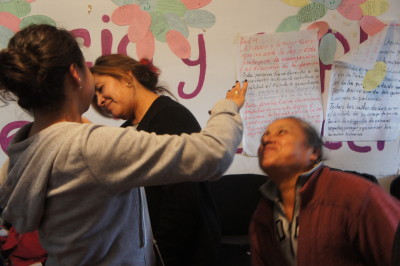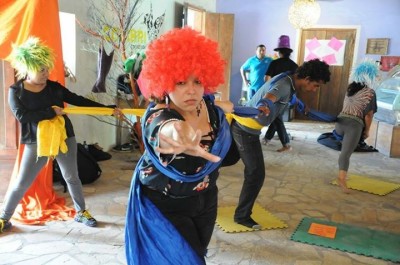Augusto Boal’s Theater of the Oppressed seeks to give back to the people the means of artistic production so they themselves may use them. It aims to recuperate the channels of expression (word, image, and sound) that are controlled by the media and the elite. It offers an opportunity for dialogue where everyone has a chance to participate. Theater is placed at the service of the oppressed, so that they can discover new concepts, ideas, and tools to deal with oppression and oppressive situations, all while discovering new ways to express themselves.

Nadia has incorporated Theater of the Oppressed to her work, a technique that she delved into during her time at Augusto Boal’s CTO, Center for the Theater of the Oppressed in Rio de Janeiro, Brazil. The tools offered by Theater of the Oppressed are tremendously valuable in the exploration of oppressions and social issues, and allow for personal and social transformations to occur. Nadia serves as an ally and shares her knowledge in order to provide tools for groups and communities so that they may find new and creative ways to express themselves, find their own voice, discuss issues that affect them and their community, and find alternatives and solutions through theater.

Nadia’s most recent projects with Theater of the Oppressed include her participation as one of the organizers of the IV Latin American Theater of the Oppressed Festival, her work in Central America during 2015, especially her participation in United Nations’ sponsored project Eradicating Violence Against Women Using Community Art, her Theatre of the Oppressed and Other Techniques Tour, GIRACA, her participation as the Theater of the Oppressed Module instructor at the first Community Art School in Nicaragua, and her involvement with the Central American Community Art, Masculinities, and Good Living Forum in Guatemala. In addition to her work with teenage immigrants at the Hope Community Center in Apopka, Florida, and her work with women from the organization CAFAMI (Migrant Family Support Center) in a rural community in Mexico.
